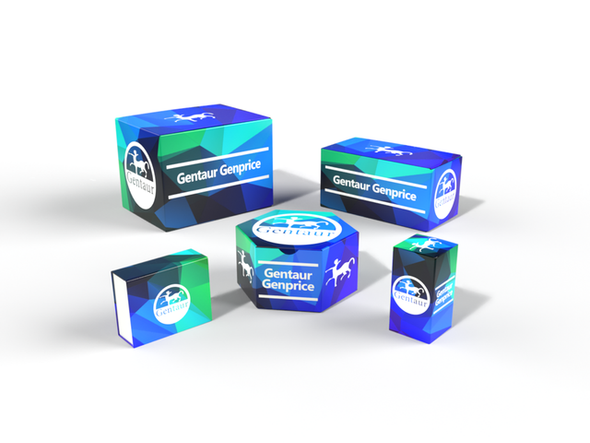Description
ATP1B1 Antibody | 19-861 | Gentaur UK, US & Europe Distribution
Host: Rabbit
Reactivity: Human, Mouse, Rat
Homology: N/A
Immunogen: Recombinant fusion protein containing a sequence corresponding to amino acids 63-303 of human ATP1B1 (NP_001668.1) .
Research Area: Cancer, Neuroscience, Signal Transduction
Tested Application: WB, IHC
Application: WB: 1:500 - 1:2000
IHC: 1:50 - 1:200
Specificiy: N/A
Positive Control 1: HepG2
Positive Control 2: A-549
Positive Control 3: U-251MG
Positive Control 4: N/A
Positive Control 5: N/A
Positive Control 6: N/A
Molecular Weight: Observed: 55kDa
Validation: N/A
Isoform: N/A
Purification: Affinity purification
Clonality: Polyclonal
Clone: N/A
Isotype: IgG
Conjugate: Unconjugated
Physical State: Liquid
Buffer: PBS with 0.02% sodium azide, 50% glycerol, pH7.3.
Concentration: N/A
Storage Condition: Store at -20˚C. Avoid freeze / thaw cycles.
Alternate Name: ATP1B1, ATP1B, MGC1798
User Note: Optimal dilutions for each application to be determined by the researcher.
BACKGROUND: The protein encoded by this gene belongs to the family of Na+/K+ and H+/K+ ATPases beta chain proteins, and to the subfamily of Na+/K+ -ATPases. Na+/K+ -ATPase is an integral membrane protein responsible for establishing and maintaining the electrochemical gradients of Na and K ions across the plasma membrane. These gradients are essential for osmoregulation, for sodium-coupled transport of a variety of organic and inorganic molecules, and for electrical excitability of nerve and muscle. This enzyme is composed of two subunits, a large catalytic subunit (alpha) and a smaller glycoprotein subunit (beta) . The beta subunit regulates, through assembly of alpha/beta heterodimers, the number of sodium pumps transported to the plasma membrane. The glycoprotein subunit of Na+/K+ -ATPase is encoded by multiple genes. This gene encodes a beta 1 subunit. Alternatively spliced transcript variants encoding different isoforms have been described, but their biological validity is not known.






